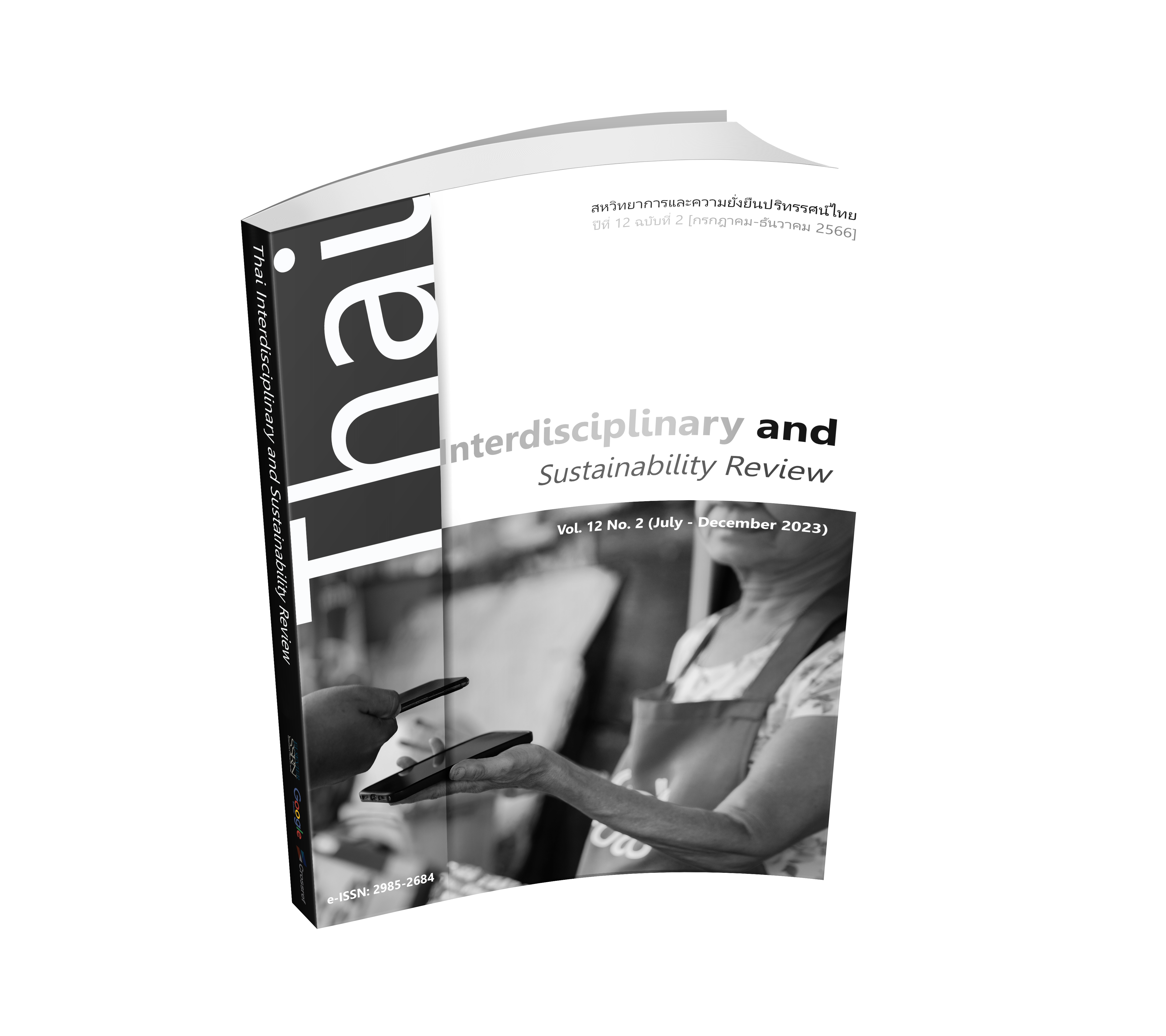THE EFFECTIVENESS OF PUBLIC SERVICE UNDER THE DIGITAL GOVERNMENT APPROACH
DOI:
https://doi.org/10.14456/tisr.2023.20Keywords:
Digital Government, New Public Service, Effectiveness of Public ServiceAbstract
The objectives of this research are to study the level of opinions on the implementation and effectiveness of digital services, factors affecting the effectiveness of digital services, and to find problems, obstacles, and guidelines for the development of digital services. The research focuses on the study of services under the concept of digital government of the District Office Registration Department, Bangkok Metropolitan. Using the mixed method research methodology by collecting 400 questionnaires and qualitatively interviewing with 14 key informants. The research findings are as follows: 1) The level of service operations and the overall effectiveness of digital services are at a high level. In particular, digital infrastructures are ready and sufficient, but there are challenges in implementing them effectively. 2) The key factors affecting the effectiveness of digital services statistically are digital service factor and digital workforce. However, the policy-making factors and digital infrastructures are still relevant factors in providing digital services. 3) Major problems and obstacles are policy formulation lacking participation from the public sector and operators. In addition, there are a problem with the lack of integration of government databases. At the same time, information technology personnel lack of specialized skills, in which requires the long-term planning of digital manpower. Moreover, people lack interest in state media which need improvement in term of content and channels.
Downloads
References
ศิรินันท์ ทิพย์เจริญ. (2555). ธรรมาภิบาลกับการบริหารจัดการภาครัฐแนวใหม่ในองค์กรปกครองส่วนท้องถิ่นไทย. วารสารสหวิทยาการวิจัย: ฉบับบัณฑิตศึกษา, 1(2), 97-103.
สำนักงานปกครองและทะเบียน. (2562). สถิติการให้บริการสำนักงานปลัด กรุงเทพมหานคร. สืบค้นจาก www.bangkok.go.th/main/page.php?499.
สำนักงานพัฒนารัฐบาลดิจิทัล (องค์การมหาชน). (2562). ผลการสำรวจระดับความพร้อมรัฐบาลดิจิทัลหน่วยงานภาครัฐของประเทศไทยประจำปี 2562. กรุงเทพฯ: สำนักงานพัฒนารัฐบาลดิจิทัล (องค์การมหาชน).
สำนักบริหารการทะเบียน. (2563). จำนวนประชากรกรุงเทพมหานคร พ.ศ.2562. สืบค้นจาก https://stat.bora.dopa.go.th/new_stat/webPage/statByYear.php.
Berman, E., & Rabin, J. (2007). Encyclopedia of Public Administration and Public Policy. 2nd ed. New York: Routledge.
Denhardt, R., & Catlaw, T. (2014). Theories of Public Organization. 7th ed. Massachusetts: Cengage Learning.
Drechsler, W. (2022). Digital Governance: Lesson from Estonia. Retrieved from www.facebook.com/MDGNIDA/photos/a.111242021262153/159911293061892/.
Ferlie, E., Lynn, L., & Pollitt, C. (2007). The Oxford Handbook of Public Management. Oxford: Oxford University Press.
Ghazaleh, M., & Ahmad, S. (2018). Ajman Digital Government: the way forward to digest digitalization. Emerald Emerging Markets Case Studies, 8(2), 1-20.
International Academy of CIO. (2018). Waseda-IAC World Digital Government Rankings. Retrieved from https://iacio.org/wasada-iac-world-e-government-ranking/.
Jenster, P. (2005). Outsourcing-insourcing: can vendors make money from the new relationship opportunities?. New Jersey: John Wiley & Sons, Inc.
Karniawati, N., Redjo, S., Suwaryo, U., & Mulyawan, R. (2017). e-Government in Public Service: Studies on Tangibles Aspects in Licensing Services at Penanaman Modal dan Pelayanan Terpadu Satu Pintu Office, West Java, Indonesia. Asian Political Science Review, 1(1), 56-64.
Kettl, D. (1997). The Global Revolution in Public Management: Driving Themes. Journal of Policy Analysis and Management, 16(3), 446-462.
Kickert, W., Klijn, E., & Koppenjan, J. (1997). Managing Complex Networks: Strategies for the Public Sector. New York: SAGE Publications Ltd.
Melitski, J., Carrizales, T., Manoharan, A., & Holzer, M. (2011). Digital governance success factors and barriers to success in prague. International Journal of Organization Theory & Behavior, 14(4), 451-472.
Organisation for Economic Co-operation and Development. (2014). Recommendation of the Council on Digital Government Strategies. Retrieved from www.oecd.org/gov/digital-government/Recommendation-digital-government-strategies.pdf.
Shafritz, J., Ott, J., & Jang, Y. (2010). Classics of Organization Theory. 7th ed. Massachusetts: Cengage Learning.
Sriram, N., Misomnai, C., Metasuttirat, J., & Rajphaetyakhom, C. (2019). A Comparative Analysis of New Public Management New Public Service and New Public Governance. Asian Political Science Review, 3(2), 32-39.
United Nations. (2010). e-Government Survey Findings and Methodology. New York: United Nations.
United Nations. (2018). e-Government Survey 2018. Retrieved from https://egov.unu.edu/news/news/un-egov-survey-2018.html.
Yamane, T. (1973). Statistics: An Introductory Analysis. 3rd ed. New York: Harper and Row.
Yildiz, M. (2003). Peeking into the Black Box of E-Government Policy-Making: Evidence from Turkey. A paper presented at the 7th National Public Management Research Conference, Georgetown University, USA.

Downloads
Published
How to Cite
Issue
Section
License
Copyright (c) 2023 Authors

This work is licensed under a Creative Commons Attribution-NonCommercial-NoDerivatives 4.0 International License.









.png)


